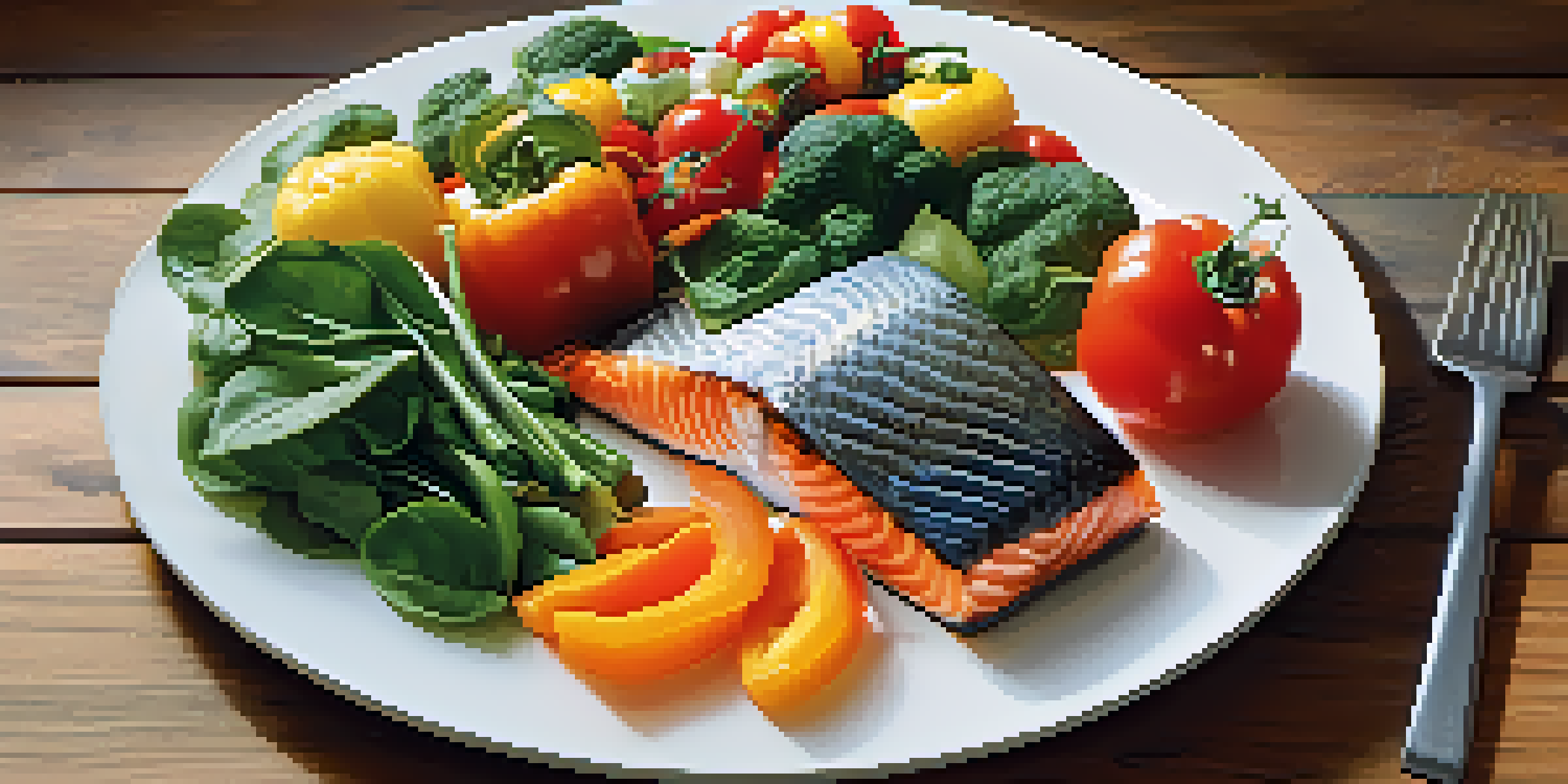Exploring Biohacking for Improved Emotional Intelligence

What is Biohacking and Emotional Intelligence?
Biohacking is a broad term that refers to the practice of using science and self-experimentation to enhance physical and mental performance. Think of it as a DIY approach to health and wellness, where individuals seek ways to optimize their bodies and minds. Emotional intelligence (EI), on the other hand, is the ability to recognize and manage our own emotions as well as understand the emotions of others.
The greatest weapon against stress is our ability to choose one thought over another.
When we combine biohacking with emotional intelligence, we’re essentially looking at ways to boost our emotional capabilities through various techniques and strategies. This can involve anything from mindfulness practices to dietary changes that affect our mood. Just as a computer runs better with the right software updates, our emotional processes can improve with the right biohacks.
In this article, we’ll explore how specific biohacking methods can enhance your emotional intelligence, making you more resilient and adaptable in social situations. Understanding this connection not only empowers you but also enriches your relationships and overall well-being.
Mindfulness: A Key Biohack for Emotional Awareness
Mindfulness is the practice of being present in the moment without judgment, and it’s one of the most powerful tools for enhancing emotional intelligence. By focusing on our thoughts and feelings as they arise, we can better understand our emotional triggers. For example, when you practice mindfulness, you may notice that stress often leads to impatience, allowing you to address it before it escalates.

Incorporating mindfulness into your daily routine can be as simple as dedicating a few minutes each day to meditation or deep breathing exercises. Apps like Headspace or Calm can guide you through these practices, making it easier to establish a habit. As you become more aware of your emotional states, you’ll find it easier to control your reactions and empathize with others.
Mindfulness Boosts Emotional Awareness
Practicing mindfulness helps individuals recognize and manage their emotions, enhancing emotional intelligence.
Ultimately, mindfulness not only enhances self-awareness but also improves your ability to connect with those around you. The more you practice, the more adept you’ll become at reading emotional cues, paving the way for deeper, more meaningful interactions.
Nutrition's Impact on Emotional Regulation
You might be surprised to learn that what you eat can significantly influence your emotional well-being. Nutritional biohacking focuses on optimizing your diet to support mental and emotional health. For instance, foods rich in omega-3 fatty acids, like salmon and walnuts, have been shown to improve mood and cognitive function, which are crucial for emotional intelligence.
Your diet is a bank account. Good food choices are good investments.
On the flip side, certain foods can lead to mood swings and irritability. Processed sugars and excessive caffeine can create emotional roller coasters, making it harder to maintain a stable emotional state. By being mindful of your dietary choices, you can biohack your way to better emotional regulation.
Consider experimenting with a diet that emphasizes whole, nutrient-dense foods while reducing processed options. Not only will this enhance your physical health, but you may also notice improvements in your mood and emotional stability, leading to more constructive interactions with others.
Physical Activity: A Natural Mood Enhancer
Exercise isn’t just about building muscles or losing weight; it’s a powerful biohack for emotional intelligence, too. Physical activity releases endorphins, often referred to as 'feel-good' hormones, which can help alleviate stress and anxiety. For example, a brisk walk or a workout session can clear your mind, making you more receptive to understanding your emotions and those of others.
Incorporating regular exercise into your routine doesn't have to be daunting. Whether it’s a dance class, yoga, or even a quick jog, find something you enjoy that gets your heart rate up. The key is consistency; the more you move, the more you’ll likely notice a positive shift in your emotional landscape.
Nutrition Affects Mood Stability
A diet rich in nutrients can improve emotional regulation, while processed foods may lead to mood swings.
As you engage in physical activities, pay attention to how they affect your mood and emotional responses. Over time, you’ll not only improve your physical health but also cultivate a greater sense of emotional awareness and resilience.
Sleep's Role in Emotional Intelligence Enhancement
It’s no secret that sleep plays a crucial role in our overall health, but its impact on emotional intelligence is often overlooked. Insufficient sleep can lead to irritability, decreased focus, and impaired decision-making. For instance, ever had a disagreement with a loved one after a sleepless night? That’s your lack of sleep clouding your emotional judgment.
To biohack your sleep, consider establishing a bedtime routine that promotes relaxation. This could involve limiting screen time before bed, creating a calm sleep environment, or even practicing gentle stretches. Quality sleep not only helps you recharge but also improves your ability to process emotions effectively.
By prioritizing sleep, you’ll wake up feeling refreshed and better equipped to handle the emotional challenges of the day. Over time, this commitment to quality rest will create a solid foundation for enhanced emotional intelligence.
Technology and Biohacking Emotional Intelligence
In today’s digital age, technology can be a powerful ally in our quest to improve emotional intelligence. Wearable devices like smartwatches can track stress levels and remind you to take breaks, allowing you to stay attuned to your emotional state throughout the day. Imagine receiving a gentle nudge to practice mindfulness when your heart rate spikes; that’s biohacking in action!
Apps designed for emotional well-being offer tools for journaling, meditation, and even mood tracking. By consistently documenting your feelings and experiences, you can identify patterns that affect your emotional health. This data-driven approach allows you to make informed decisions about your emotional practices.
Community Strengthens Emotional Skills
Engaging with a supportive community fosters empathy and helps individuals develop their emotional intelligence.
However, it’s essential to strike a balance between leveraging technology and maintaining genuine human connections. While tech can enhance our emotional awareness, nothing replaces the value of face-to-face interactions and authentic relationships.
Building Emotional Intelligence Through Community
Community plays an integral role in developing emotional intelligence, providing a support network that encourages growth and understanding. Engaging with others allows us to practice empathy and develop our emotional skills in real-world scenarios. Whether it’s joining a local club, volunteering, or participating in group activities, surrounding yourself with diverse perspectives can enrich your emotional toolkit.
Consider participating in group discussions or workshops focused on emotional intelligence. These settings offer opportunities to learn from others’ experiences and share your own, fostering a deeper understanding of different emotional landscapes. By engaging with a community, you’ll also find encouragement and motivation to continue your biohacking journey.

Ultimately, building emotional intelligence is not a solo endeavor; it flourishes in the company of others. As you connect with your community, you’ll not only enhance your emotional skills but also contribute to a more empathetic and understanding society.